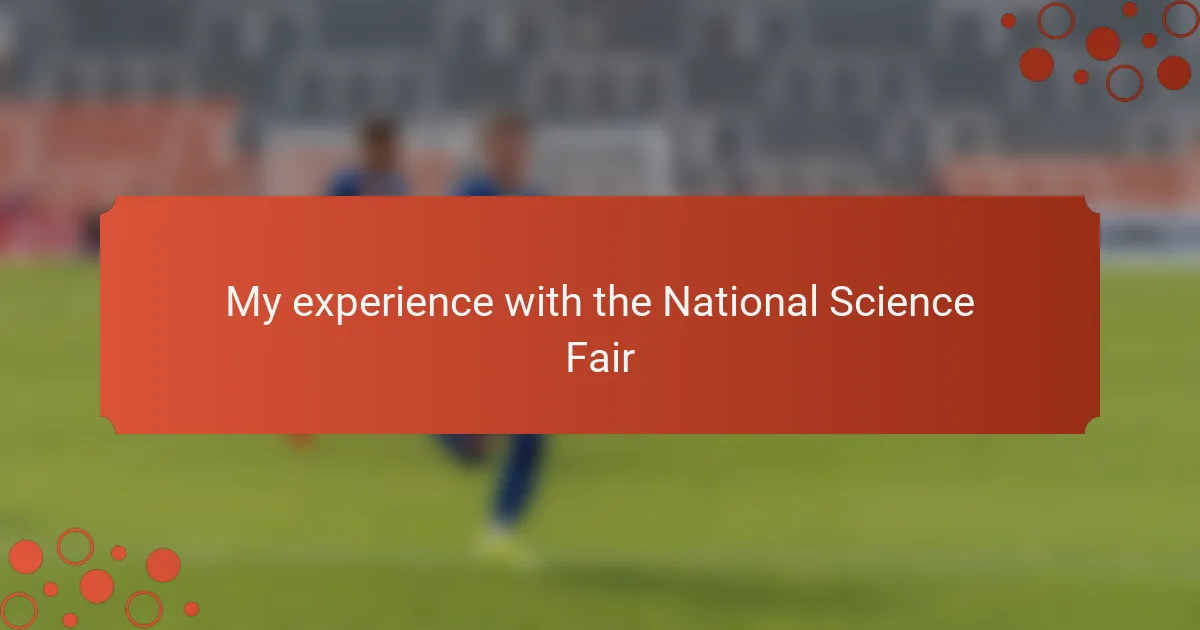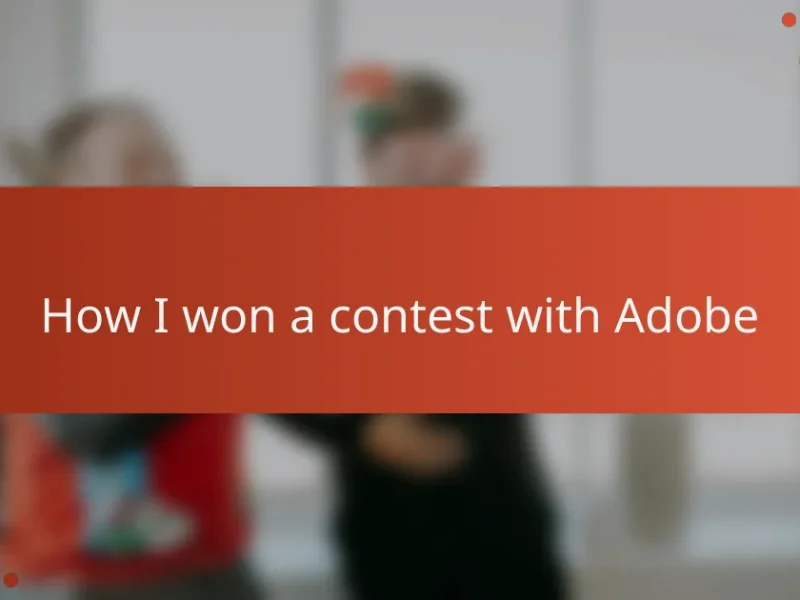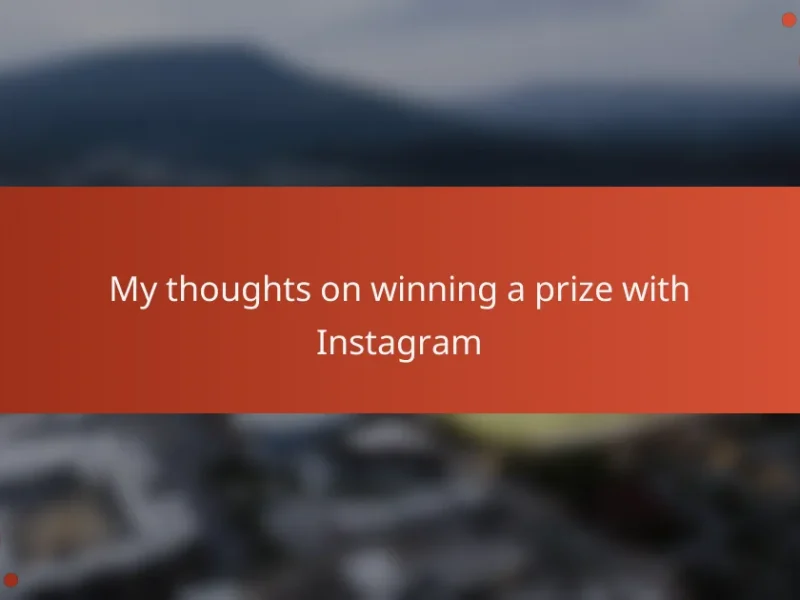Key takeaways
- The National Science Fair fosters creativity and critical thinking among students, focusing on sharing discoveries rather than just competition.
- Video contests enhance storytelling abilities, encouraging participants to connect with audiences through engaging narratives.
- Balancing confidence with humility and effective time management are essential skills learned through competition experiences.
- Participation in science fairs can lead to future opportunities, networking, and skill development that benefit academic and career paths.
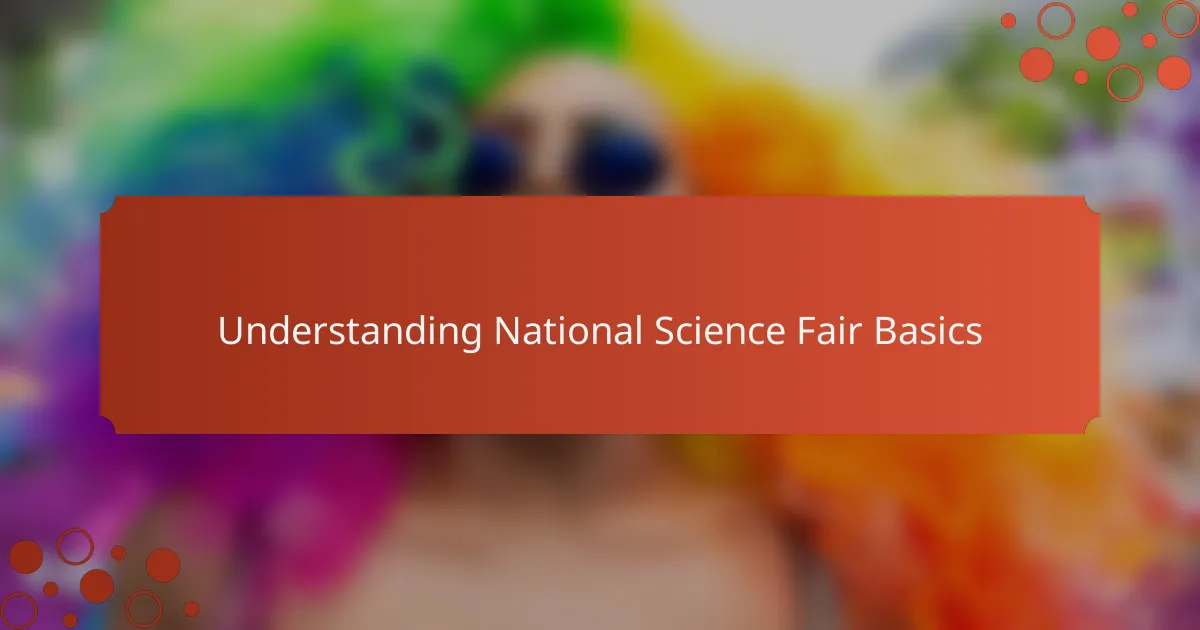
Understanding National Science Fair Basics
The National Science Fair is not just a competition; it’s a celebration of curiosity and innovation. From my experience, understanding the basics means recognizing that it’s open to students across various grades who bring projects in science, technology, engineering, and math. Have you ever wondered what it feels like to present your idea after months of hard work? That moment of standing there, explaining your project, is both nerve-wracking and exhilarating.
What stood out to me was how the fair isn’t just about winning awards. It’s about sharing discoveries and learning from others. The judging process can seem intimidating, but it’s designed to push you to think critically and communicate clearly. I remember feeling a mix of excitement and pressure while answering judges’ questions—those moments taught me the value of preparation and passion.
One key thing I learned is how the National Science Fair encourages creativity within structured guidelines. Each project must follow specific criteria, but that framework actually helps sharpen ideas. Have you noticed how some of the best innovations come from working within limits? This balance between rules and imagination makes the fair a unique experience worth understanding deeply.
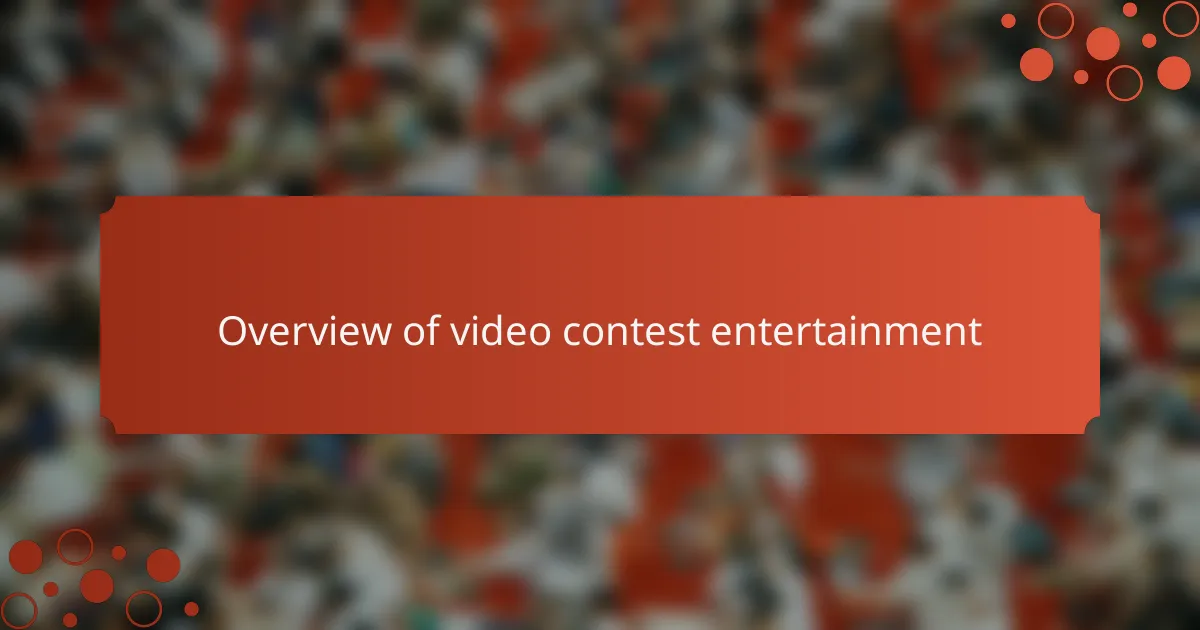
Overview of Video Contest Entertainment
Video contest entertainment has become a vibrant platform for showcasing creativity through a mix of storytelling and technical skills. From my experience, it’s fascinating how these contests bring together people who are passionate about expressing ideas visually, often under tight deadlines that add an exciting challenge. Have you ever felt that rush when your video finally comes together just right? That sense of accomplishment is hard to beat.
What I find particularly engaging is how video contests encourage participants to push their boundaries, blending art with technology. The thrill of editing footage, adding sound, and crafting a compelling narrative is something I deeply relate to—each step demands focus and creativity. Watching other entries is also inspiring; it’s like attending a mini film festival right from your screen.
At the core, video contest entertainment is about connection—connecting with an audience, with fellow creators, and with your own creative voice. Have you noticed how a well-made video can spark conversations or change perspectives? That’s the true power of these contests, making the entire experience incredibly rewarding and memorable.
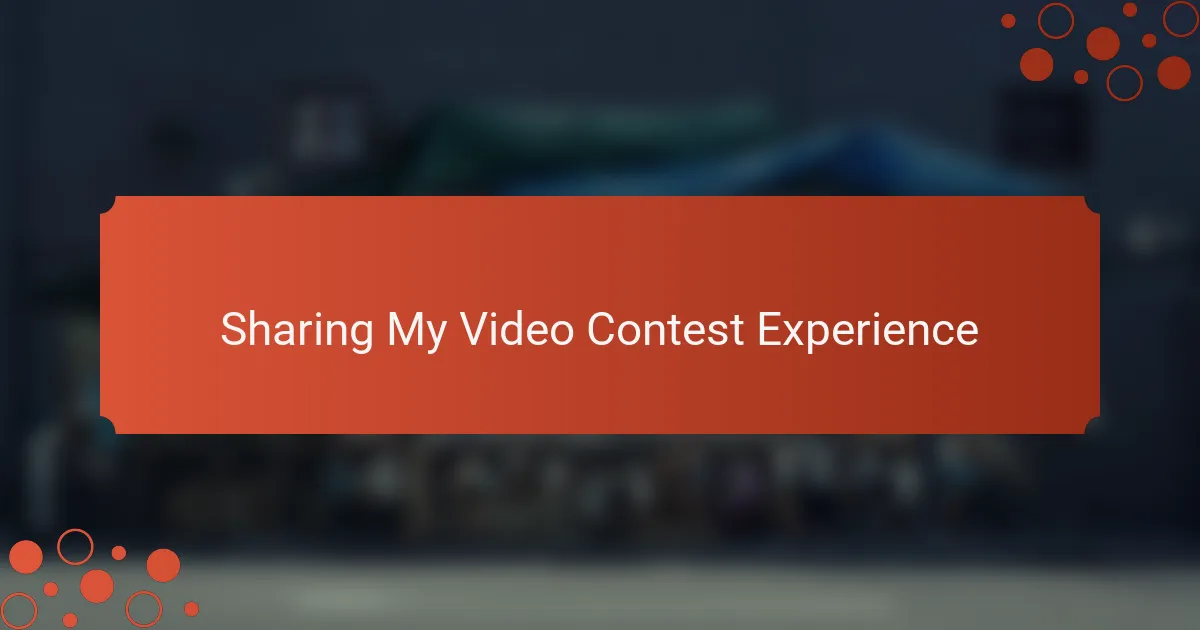
Sharing My Video Contest Experience
Sharing my video contest experience at the National Science Fair was a journey full of surprises. I still remember the moment I hit “record” on my camera, feeling the blend of excitement and nervousness as I tried to capture the essence of my project. Have you ever experienced that delicate balance between wanting to showcase your work perfectly and the fear of missing something important? That was exactly how I felt.
What truly made the experience unforgettable was seeing my video come to life through careful editing and storytelling. I found myself reflecting on how to make complex scientific concepts engaging and accessible. It was not just about demonstrating my project but inviting viewers to share in my enthusiasm—doesn’t that make the whole process more meaningful?
Answering questions from judges after presenting the video added another layer of depth. I realized how the contest pushed me to think on my feet and clearly communicate my ideas beyond just visuals. Have you ever had to explain your work under pressure? That mix of challenge and opportunity taught me skills I still value today.
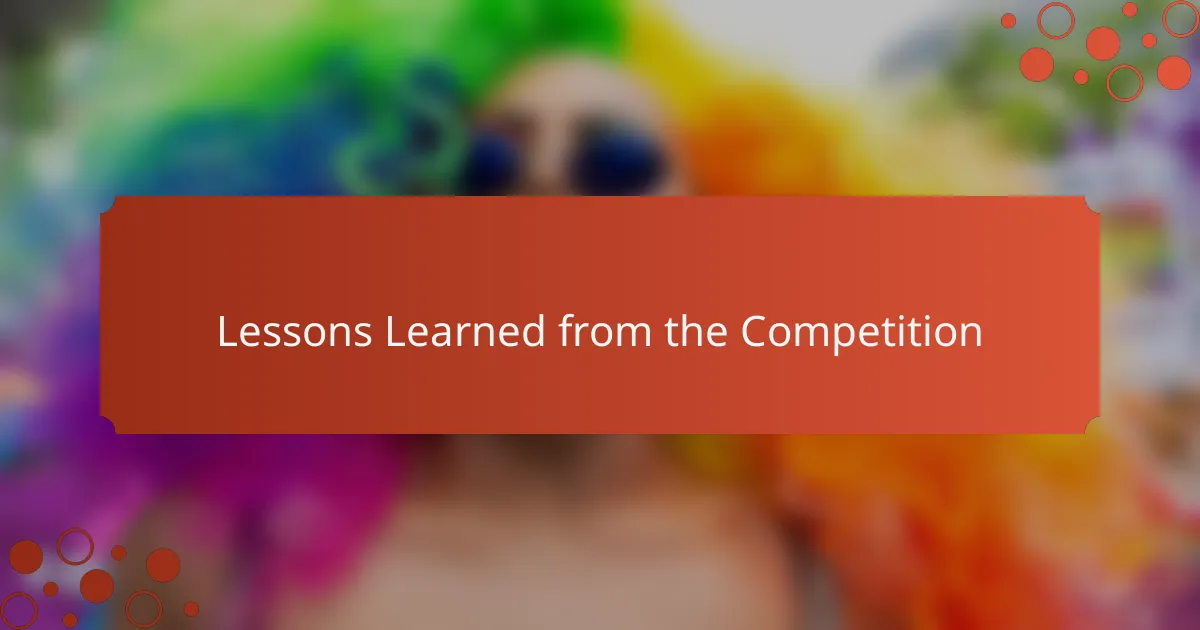
Lessons Learned from the Competition
One lesson that stuck with me was the importance of balancing confidence with humility. I walked into the judging room feeling proud of my project but quickly learned that being open to feedback made all the difference. Have you ever noticed how embracing questions—even tough ones—can turn a challenging moment into a chance to grow?
I also realized that time management plays a huge role in a competition like this. I underestimated how much time editing the video would take, which added stress near the deadline. That experience taught me to plan ahead and respect the process, rather than rushing at the last minute.
Finally, the fair showed me the value of community. Meeting peers who shared my passion for science and creativity made the whole journey feel less lonely. Isn’t it amazing how a shared experience can motivate you to push harder and dream bigger?
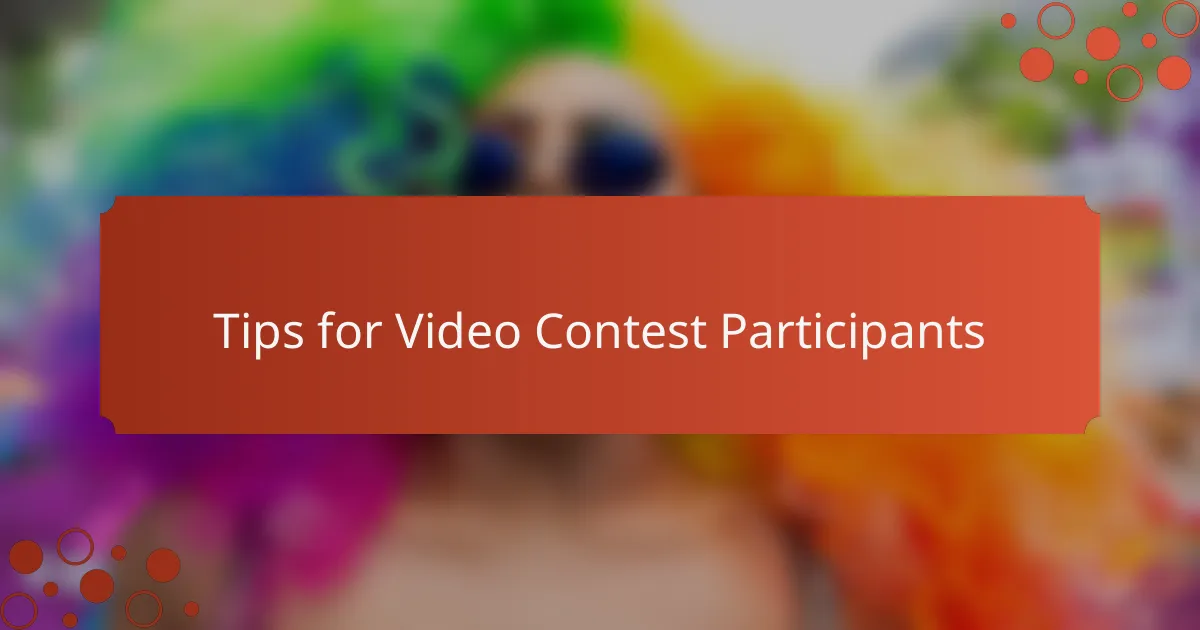
Tips for Video Contest Participants
One tip I always emphasize is starting your video early. I once waited too long to film and edit, scrambling to meet the deadline—it added unnecessary stress. Have you ever tried rushing creativity? It rarely works out well, so pacing yourself makes a huge difference.
Another thing I learned is the power of storytelling. Simply showing data isn’t enough; you want to take viewers on a journey. I found that weaving personal reflections or challenges into my video helped judges connect with my project on a deeper level. How do you think your story can make science feel more relatable?
Lastly, don’t be afraid to ask for feedback before submitting. Sharing drafts with friends or mentors opened my eyes to details I had missed. Ever noticed how fresh eyes catch things you overlook? That input can truly elevate your video from good to great.
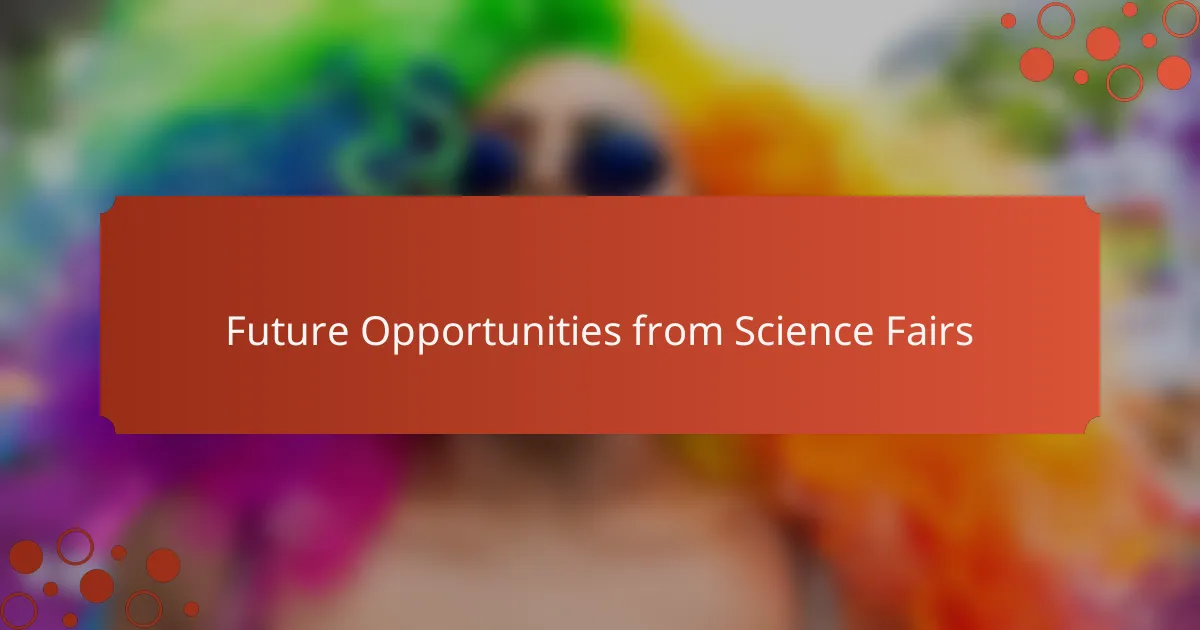
Future Opportunities from Science Fairs
Thinking back, the National Science Fair opened doors I hadn’t even imagined before. Have you ever wondered how an experience like this can shape your future? For me, it wasn’t just about competing; it was about discovering new paths—whether scholarships, internships, or even meeting mentors who could guide my next steps in science and technology.
What really struck me was how the fair creates a network that lasts well beyond the competition itself. I recall receiving invitations to workshops and summer programs simply because judges and organizers saw potential in my work. That kind of recognition feels like a ticket to opportunities that might have seemed out of reach otherwise.
It’s also worth noting how participating in the fair boosts skills that employers and universities value deeply. From communication to problem-solving, these experiences build a foundation for future success. Reflecting on my journey, I can say that the fair was a stepping stone—not just an event—opening doors to exciting possibilities I’m still exploring today.
